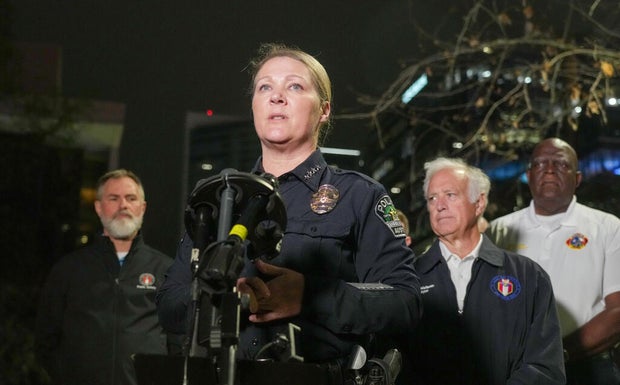News
🌏 Donald Trump x Elon Musk?

Good morning, Quartz readers!
HERE’S WHAT YOU NEED TO KNOW
Donald Trump is close to collabing with Elon Musk. The presidential candidate wants the tech billionaire to lead a “government efficiency commission.”
Google is gearing up for another antitrust trial. The first one was about its search dominance, and this one is about its ad tech dominance.
JetBlue actually made out pretty good during the CrowdStrike outage. The carrier raised its revenue guidance because it sopped up its competitors’ stranded passengers.
Kroger promised to cut prices. Of course, it would have to be allowed to merge with Albertsons first.
Verizon is buying $20 billion in internet fiber. It’s acquiring Frontier Communication to boost its reach.
CHICAGO FED PREZ SAYS ECONOMIC VIBES ARE WHATEVER
Austan Goolsbee says that America is getting tantalizingly close to a so-called “soft landing” where the Federal Reserve has successfully raised interest rates to bring inflation down without destroying the economy.
From his presidential perch at the Federal Reserve Bank of Chicago, Goolsbee says that things are getting to the point that he and his colleagues can focus less on doomer vibes and more on data points that seem to be painting a rosier picture of the country’s fiscal well-being.
Quartz’s Rocio Fabbro chatted with Goolsbee about his outlook on where things go from here and whether the Fed is behind the curve on getting there.
THAT’S A MIGHTY BIG MATTRESS
Family offices are gaining ground on hedge funds as the favorite safe havens of the wealthiest people’s wealth, says Deloitte.
The consultancy expects the fortunes stowed with the investment vehicles to reach $9 trillion by 2030 — nearly triple the amount from just a few years ago — as the upper-est crust grows tired of sharing its returns with riff-raff who don’t share a bloodline.
Quartz’s Madeline Fitzgerald explains not just what a family office is, but what the concept’s growing popularity means for the future of global finance.
MORE FROM QUARTZ
🦾 OpenAI hit 1 million paid business users for ChatGPT — with possible price increases coming
💰 Mark Cuban says Kamala Harris will definitely not tax unrealized capital gains
📱New Mexico sued Snapchat for allowing ‘sextortion’ and sexual abuse targeting children
🎄 Half of Americans will start their holiday shopping even before Halloween
💉An Eli Lilly experiment could let insulin-using diabetes patients avoid 313 injections
🏈 These are the 10 wealthiest sports franchise owners in America
SURPRISING DISCOVERIES
A newly found antibody could be a beat-all COVID-19 vaccine. Scientists think they may have found a treatment that can recognize slippery changes in the virus’s spike protein.
Cats might be hiding how much they like playing fetch. A survey of cat people says 41% of them “sometimes, frequently or always” bring back thrown objects.
Colonial Americans rioted over pine trees. The British Crown’s efforts at conservation were fairly unpopular.
A dye used for Gatorade might turn your skin clear. Scientists tried using yellow-tinting tartrazine on mice first; humans might get their turn, too, one day.
Michael Jordan has been trying to sell his house for 12 years. The basketball star lowered his price from $29 million to $14.855 million in 2015 — 1+4+8+5+5=23, his playing number — and hasn’t budged since.
Did you know we have two premium weekend emails, too? One gives you analysis on the week’s news, and one provides the best reads from Quartz and elsewhere to get your week started right. Become a member or give membership as a gift!
Our best wishes on a safe start to the day. Send any news, comments, economic vibes, or transparent skin pics to talk@qz.com. Today’s Daily Brief was brought to you by Melvin Backman and Morgan Haefner.

News
Satellite images provide view inside Iran at war

Smoke rises over Konarak naval base in southern Iran on Sunday. The base was one of hundreds of targets of U.S. and Israeli forces throughout the country.
Planet Labs PBC
hide caption
toggle caption
Planet Labs PBC
Commercial satellite images are providing a unique look at the extent of damage being done to Iran’s military facilities across the country.
The U.S. and Israeli military campaign opened with a daytime attack that struck Iranian leadership in central Tehran. Smoke was still visible rising from Ayatollah Ali Khamenei’s compound following the attack that killed the supreme leader.

An image by the company Airbus taken on Saturday shows the aftermath of an Israeli strike on Iran’s Leadership House in central Tehran. Iran’s Supreme Leader Ayatollah Ali Khamenei was killed in the opening wave of attacks.
Pléiades Neo (c) Airbus DS 2026
hide caption
toggle caption
Pléiades Neo (c) Airbus DS 2026
Israel and the U.S. have gone on to strike targets across the country. Reports on social media indicate that there have been numerous military bases and compounds attacked all over Iran, and Iran has responded with attacks throughout the Middle East.
U.S. forces have also been striking at Iran’s navy. In a post on his social media platform, President Trump said that he had been briefed that U.S. forces had sunk nine Iranian naval vessels. U.S. Central Command did not immediately confirm that number but it did say it had struck an Iranian warship in port.

An image captured on Saturday shows a ship burning at Iran’s naval base at Konarak.
Satellite image ©2026 Vantor
hide caption
toggle caption
Satellite image ©2026 Vantor
Numerous satellite images show burning vessels at Konarak naval base in southern Iran. Images also show damage to a nearby airbase where hardened hangers were struck by precision munitions.

Hardened aircraft shelters at Konarak airbase were struck with precision munitions.
Satellite image ©2026 Vantor
hide caption
toggle caption
Satellite image ©2026 Vantor
And there was extensive damage at a drone base in the same area. Iran has launched numerous drones and missiles toward Israel and U.S. military installations in Bahrain, Kuwait and Qatar. Many drones have been intercepted but videos on social media show that some have evaded air defenses and caused damage in nearby Gulf countries. In Dubai, debris from an Iranian drone damaged the iconic Burj Al Arab, according to a statement from Dubai’s government.

Buildings at an Iranian drone base at Konarak were destroyed in the strikes.
Satellite image ©2026 Vantor
hide caption
toggle caption
Satellite image ©2026 Vantor
Iran’s most powerful weapons are its long-range missiles. The Iranian Revolutionary Guards have hidden the missiles deep inside mountain tunnels. Images taken Sunday in the mountains of northern Iran indicate that some of those tunnels were hit in a wave of strikes.
Following Khamenei’s death, Iran declared 40 days of mourning. Satellite images showed mourners gathering in Tehran’s Enghelab square on Sunday.
Iranian Foreign Ministry Spokesperson Esmail Baghaei told NPR on Sunday that Iran will continue to fight “foreign aggression, foreign domination.”
A White House official told NPR that Trump plans to talk to Iran’s interim leadership “eventually,” but that for now, U.S. operations continue in the region “unabated.”

A large crowd of mourners fill Enghelab Square in Tehran on Sunday, following the death of Iran’s Supreme Leader Ayatollah Ali Khamenei, who was killed in an Israeli airstrike.
Satellite image ©2026 Vantor
hide caption
toggle caption
Satellite image ©2026 Vantor
News
Video: What the Texas Primary Battle Means for the Midterms

new video loaded: What the Texas Primary Battle Means for the Midterms
By J. David Goodman, Alexandra Ostasiewicz, June Kim and Luke Piotrowski
March 1, 2026
News
Mass shooting at Austin, Texas bar leaves at least 3 dead, 14 wounded, authorities say

Gunfire rang out at a bar in Austin, Texas, early Sunday and at least three people were killed, the city’s police chief said.
Austin Police Chief Lisa Davis told reporters the shooter was killed by officers at the scene.
Fourteen others were hospitalized and three were in critical condition, Austin-Travis County EMS Chief Robert Luckritz said.
“We received a call at 1:39 a.m. and within 57 seconds, the first paramedics and officers were on scene actively treating the patients,” Luckritz said.
There was no initial word on the shooter’s identity or motive.
Davis noted how fortunate it was that there was a heavy police presence in Austin’s entertainment district at the time, enabling officers to respond quickly as bars were closing.
“Officers immediately transitioned … and were faced with the individual with a gun,” Davis said. “Three of our officers returned fire, killing the suspect.”
She called the shooting a “tragic, tragic” incident.
Austin Mayor Kirk Watson said his heart goes out to the victims, and he praised the swift response of first responders.
“They definitely saved lives,” he said.
Davis said federal law enforcement is aiding the investigation.
-

 World4 days ago
World4 days agoExclusive: DeepSeek withholds latest AI model from US chipmakers including Nvidia, sources say
-

 Massachusetts4 days ago
Massachusetts4 days agoMother and daughter injured in Taunton house explosion
-

 Montana1 week ago
Montana1 week ago2026 MHSA Montana Wrestling State Championship Brackets And Results – FloWrestling
-

 Denver, CO4 days ago
Denver, CO4 days ago10 acres charred, 5 injured in Thornton grass fire, evacuation orders lifted
-

 Louisiana7 days ago
Louisiana7 days agoWildfire near Gum Swamp Road in Livingston Parish now under control; more than 200 acres burned
-

 Technology1 week ago
Technology1 week agoYouTube TV billing scam emails are hitting inboxes
-

 Politics1 week ago
Politics1 week agoOpenAI didn’t contact police despite employees flagging mass shooter’s concerning chatbot interactions: REPORT
-

 Technology1 week ago
Technology1 week agoStellantis is in a crisis of its own making






















